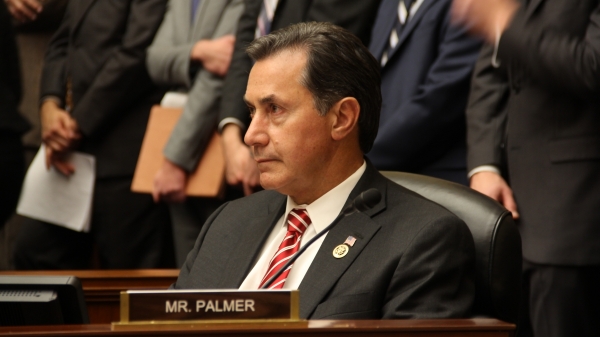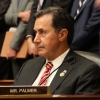By Brandon Moseley
Alabama Political Reporter
U.S. Senator Richard Shelby (R) from Alabama urges the Federal Reserve to be more transparent at a Thursday hearing on the Federal Reserve’s Semiannual Monetary Report to the Congress. Sen. Shelby released his remarks in a press release. Senator Shelby is the ranking Republican on the Committee on Banking, Housing and Urban Affairs
Sen. Shelby said, “Since the Federal Reserve took unprecedented actions in response to the financial crisis, there has been a growing recognition that the Fed needs to become more transparent. There was a time when central bankers met behind closed doors and stubbornly refused to inform the public of their decisions. Those days are clearly over.
Sen. Shelby continued, “The public now rightly demands that policymakers not only explain their decisions, but also be accountable for their actions. This is especially true of the Fed, which, thanks to Dodd-Frank, now exercises even greater authority over the American economy and the lives of every American.”
“To his credit, Chairman Bernanke has long recognized the need to modernize the Fed. In his first confirmation hearing, he stated that he believed making the Fed more transparent would ‘increase democratic accountability, promote constructive dialogue between policymakers and informed outsiders, and reduce uncertainty in financial markets and help anchor the public’s expectations of long-run inflation.’ During Chairman Bernanke’s last Humphrey-Hawkins appearance, I noted that he has taken some important steps to improve the transparency of the FOMC, including holding press conferences to discuss monetary policy,” Shelby said.
“Since then, the FOMC has taken another step to improve transparency by adopting an explicit inflation goal of two percent.” “Yet, it remains uncertain if the Fed’s recently announced inflation goal will achieve these objectives. While the Fed was establishing its inflation goal, it was, at the same time, communicating contradictory signals about its commitment to that inflation target. The FOMC minutes reveal that Chairman Bernanke indicated that he believed the inflation goal would not represent a change in the FOMC’s policy.” “In addition, the FOMC has stated that it believes economic conditions are ‘likely to warrant exceptionally low levels for the federal funds rate at least through late 2014.’ In other words, the Fed is signaling to market participants that it expects to continue its near-zero interest rate policy for at least three more years.”
Shelby warned, “This begs the question: is the FOMC focused on targeting low interest rates or its new inflation goal? If the inflation goal conflicts with keeping interest rates near zero, which target will prevail? In other words, why should market participants have confidence that the Fed is actually committed to achieving its inflation goal? And if the Fed is not serious about achieving its inflation goal, how will the Fed’s credibility suffer when inflation rises above 2 percent?”
Senator Shelby said, “While the Chairman has taken steps to improve the transparency of the FOMC, the transparency of the Board of Governors appears to be getting worse. A recent Wall Street Journal article noted that the Board has held 47 separate votes on financial regulations since Dodd-Frank became law, yet they have held only two public meetings. The article noted that there has been a steady reduction in the number of open meetings by the Board since the early 1980s, when the Board had more than 30 open meetings. As a result, the Fed is making sweeping financial regulatory policy decisions behind closed doors. This is inconsistent with Chairman Bernanke’s professed goal of making the Fed more transparent.”
Senator Shelby warned that the Federal Reserve Governors were treading into partisan political issues. Shelby said, “In another troubling new development, the Fed recently decided to enter into the debate on housing policy. On January 4th, the Fed issued a white paper entitled ‘The U.S. Housing Market: Current Conditions and Policy Considerations.’ The stated goal of the paper was ‘not to provide a blueprint, but rather to outline issues and tradeoffs that policymakers might consider.’ ““In weighing in on housing policy, certain Fed Governors have begun to take sides in what should be a Congressional policy debate. The Fed’s independence for monetary policy has always been premised on it remaining nonpartisan and not advocating for specific legislative measures. The Fed has been and should continue to be a useful resource for information and analysis on the housing market. It should not, however, become an active participant in the legislative debate over the future of housing finance. Accordingly, I hope that the Fed’s recent foray into housing policy will not become common practice.”
The Federal Reserve System was founded by Congress in 1913. It is the central bank of the United States. According to the Federal Reserve’s website, the Federal Reserve’s duties involve four main areas:
1) “conducting the nation’s monetary policy by influencing the monetary and credit conditions in the economy in pursuit of maximum employment, stable prices, and moderate long-term interest rates
2) “supervising and regulating banking institutions to ensure the safety and soundness of the nation’s banking and financial system and to protect the credit rights of consumers”
3) “maintaining the stability of the financial system and containing systemic risk that may arise in financial markets”
4) “providing financial services to depository institutions, the U.S. government, and foreign official institutions, including playing a major role in operating the nation’s payments system”
The Federal Reserve System has come under greater criticism after its failure to either prevent or accurately predict the housing crisis and the resulting Great Recession of 2008-2010. Presidential Candidate and Congressman Ron Paul (R) from Texas has based much of his campaign on his criticism of the Federal Reserve System.
To read Senator Shelby’s comments in their entirety:
To learn more about the Federal Reserve




















































